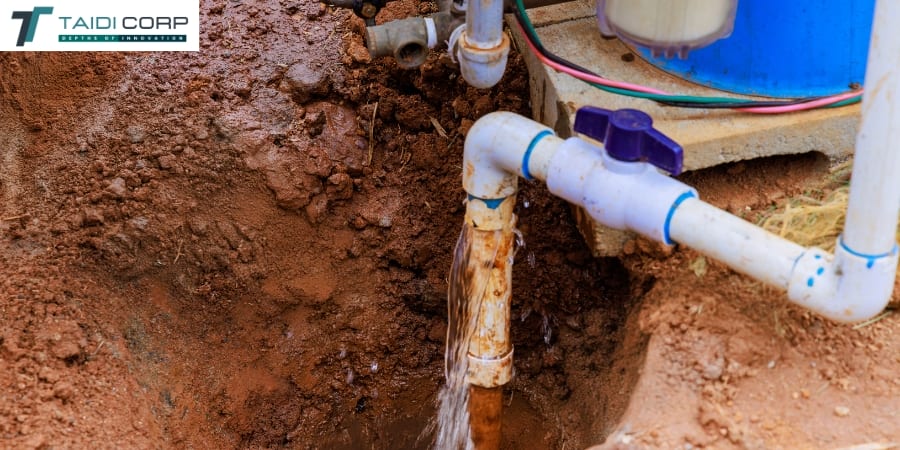
Submersible pumps, especially deep well submersible pumps, play a vital role in ensuring a reliable water supply for farms, homes, and commercial establishments. Despite their high efficiency and low-maintenance design, these pumps can experience performance issues that may go unnoticed until they result in costly breakdowns or system failures. Regular inspections are essential to maximize pump longevity, maintain water quality, and ensure uninterrupted water management. Below, we take a critical look at the problems associated with neglecting periodic inspections and the solutions to keep your submersible pump functioning efficiently.
Problem: Hidden Damage and Performance Decline
Many submersible pump owners—whether farmers, homeowners, or commercial entities—assume that once installed, their deep well pumps will operate indefinitely without issues. Unfortunately, deep well submersible pumps are prone to several hidden problems, including wear and tear on pump components, motor inefficiencies, and clogging due to sediment buildup. Over time, these issues can significantly reduce the pump’s efficiency, increasing electricity costs and reducing water output.
Ignoring regular inspections can lead to unexpected breakdowns, which may result in expensive repairs and a critical loss of water supply. For farmers, this could mean crop failure; for homeowners, limited access to essential water; and for commercial properties, disruptions that affect operations and profits.
Solution: Schedule Regular Inspections
To avoid these problems, periodic inspections are essential. Checking the pump’s motor, impellers, seals, and other components can help identify potential issues before they turn into costly repairs. It’s important to conduct these inspections even if the pump seems to be running smoothly, as early signs of wear may not always be visible during day-to-day use.
Learn more about the critical role of inspecting deep well submersible pump components to ensure a long-lasting and efficient system.
Problem: Decreased Water Output and Increased Energy Consumption
A gradual decline in water output and a rise in energy consumption can often go unnoticed without regular monitoring. Deep well submersible pumps can develop issues like worn-out impellers, sediment clogging, or motor problems that cause them to work harder to pump the same amount of water. This results in higher electricity bills and lower water efficiency, problems that are particularly detrimental in agricultural or commercial settings where consistent water supply is crucial.
Solution: Regular Testing of Pump Performance
One of the most effective ways to catch these issues early is by testing the performance of your pump. A critical look at the performance testing of deep well submersible pumps will help you understand whether your pump is operating at peak efficiency or if it’s time to consider repairs or adjustments. This can involve checking the pump’s flow rate, water pressure, and energy consumption. Performance testing helps you identify inefficiencies before they become major problems, saving both time and money.
Problem: Potential Legal and Compliance Issues
For commercial establishments and farms, there may be specific regulations surrounding the installation and operation of deep well submersible pumps. Failing to regularly inspect and maintain the pump system could lead to violations of water management laws, resulting in fines or penalties. In some regions, there may be a need for special permits to operate deep well pumps, and failing to comply with these regulations could be costly.
Solution: Ensure Legal Compliance with Regular Inspections
Regular inspections are not only critical for ensuring the operational health of the pump but also for staying compliant with local water management regulations. If you’re unsure whether you need a permit or are uncertain about the requirements, it’s crucial to consult experts in the field. Learn more about special permits for deep well submersible pumps to avoid potential legal complications.
Problem: Expensive Repairs and Downtime
One of the greatest risks of not conducting periodic inspections is the potential for unexpected breakdowns, which can lead to costly repairs and significant downtime. For commercial properties and farms, this can result in a loss of productivity, and for homeowners, it can disrupt daily life. Deep well pumps are expensive pieces of equipment, and replacement costs can quickly add up if a failure occurs.
Solution: Expert Maintenance and Troubleshooting
To prevent this scenario, it’s important to have a regular maintenance plan in place. Simple actions such as cleaning filters, checking electrical connections, and inspecting seals can make a huge difference. Expert maintenance tips can guide you through the key steps necessary to keep your pump in optimal condition. Additionally, knowing how to troubleshoot your pump can help resolve minor issues before they escalate into major problems. Check out this comprehensive troubleshooting guide for more detailed advice.
Problem: DIY Installation Leading to Improper Setup
Many individuals may consider installing deep well submersible pumps themselves to save costs, but improper installation can cause performance issues down the line. If the pump isn’t installed correctly, it may suffer from misalignments, incorrect pressure settings, or electrical issues, leading to reduced efficiency or failure.
Solution: Hire Professionals or Follow a Detailed Installation Guide
It’s critical to either hire professional installers who are experienced with deep well submersible pumps or follow a highly detailed guide to ensure proper setup. Poor installation can lead to frequent repairs and pump failure, negating any cost savings from doing it yourself. Learn more about the risks of DIY installations and access a detailed installation guide to avoid costly errors.
Conclusion: Prioritize Inspections for Long-Term Efficiency
Whether you’re a farmer relying on deep well submersible pumps for irrigation, a homeowner ensuring a steady water supply, or a commercial operator managing a large-scale water system, periodic inspections are critical. Regular maintenance and performance checks can prevent hidden damage, increase pump efficiency, and save you from unexpected repair costs. Don’t wait for a breakdown to realize the importance of regular inspections—by being proactive, you can ensure your deep well submersible pump remains reliable for years to come.
For more expert advice on water management, maintenance, and troubleshooting, visit Taidicorp and explore their extensive range of guides and resources.
